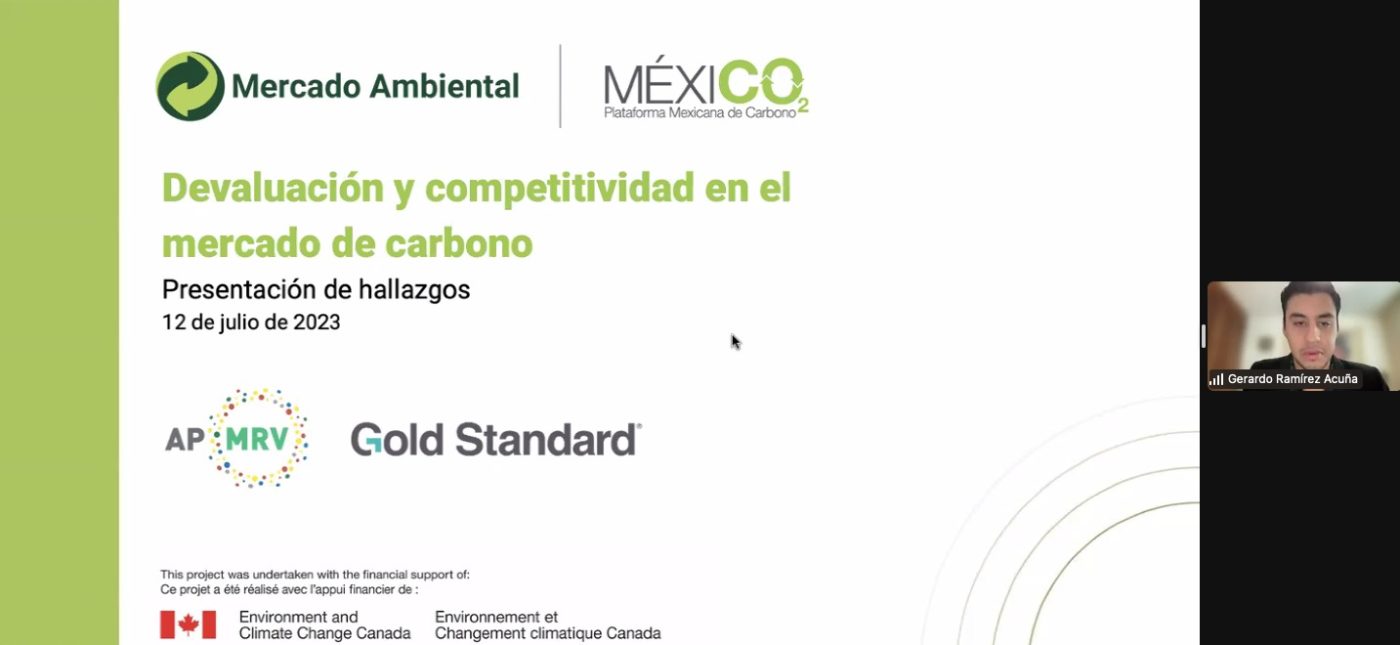July 18, 2023 – On July 12, the Pacific Alliance Technical Subgroup for Measurement, Reporting and Verification (SGT-MRV) presented the results of the study ‘Devaluation and competitiveness in the carbon market’, which was prepared by the Mexican consulting firm Mercado Ambiental. The work, which received financial support from Environment and Climate Change Canada (ECCC), is contextualized in the coordination framework of the SGT-MRV and responds to a request from delegates of the Alliance countries to understand the implications of various economic variables (such as exchange rate, inflation and growth, among others) on the design and implementation of carbon pricing instruments.
The study focused on the three countries that already have at least one carbon pricing instrument in place, such as Chile, Colombia and Mexico. In this regard, the exhibitors of Mercado Ambiental, Gerardo Ramirez and Luis Colin, highlighted:
-
In macroeconomic terms, it is recommended that the design of future carbon price instruments should consider the effects of inflation and the exchange rate. In the first, adjusting periodically (e.g. annually) to the purchasing value considering some price index, and in the second, if it is fixed in foreign currency (e.g. US dollar) considering the appreciation or depreciation of the local currency with respect to the dollar. These are the variables that most influence carbon prices and markets in the Pacific Alliance countries.
-
The successful implementation of a carbon price instrument, as well as the efficient operation of carbon markets, requires coordinated inter-institutional work, mainly between ministries of finance and ministries of environment.
-
An adequate carbon price can encourage investments in cleaner technologies and financial flows that can be directed to climate change mitigation and adaptation projects. It is therefore necessary to ensure that measures to control inflation and devaluation do not interfere with climate goals (and vice versa).
-
With the growing interest in participating in international markets or in cooperation mechanisms such as Article 6 of the Paris Agreement, priority sectors must be defined for the implementation of mitigation projects, as well as strengthening institutional capacities and ensuring clear and transparent rules.
-
With the current context of carbon pricing instruments, it is possible to visualize a potential regional carbon market with Chile, Colombia and Mexico as demand generators and Peru and Ecuador as reduction supply generators. This could allow the Pacific Alliance to take advantage of opportunities for emissions reductions, while enhancing regional cooperation.
A recording of the webinar can be accessed at the following link:
Passcode: #4EB8Y@0

